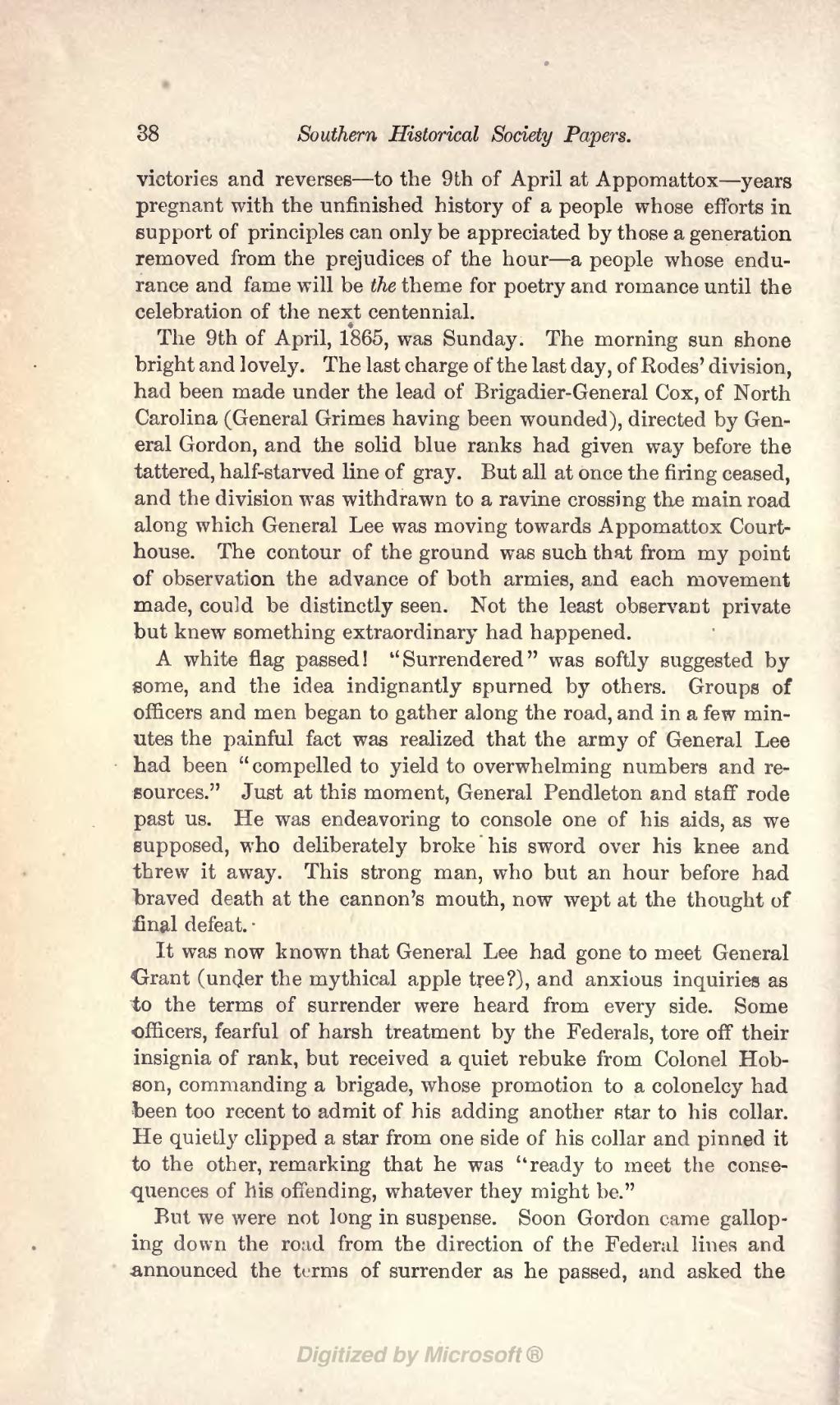victories and reverses—to the 9th of April at Appomattox—years pregnant with the unfinished history of a people whose efforts in support of principles can only be appreciated by those a generation removed from the prejudices of the hour—a people whose endurance and fame will be the theme for poetry and romance until the celebration of the next centennial.
The 9th of April, 1865, was Sunday. The morning sun shone bright and lovely. The last charge of the last day, of Rodes' division, had been made under the lead of Brigadier-General Cox, of North Carolina (General Grimes having been wounded), directed by General Gordon, and the solid blue ranks had given way before the tattered, half-starved line of gray. But all at once the firing ceased, and the division was withdrawn to a ravine crossing the main road along which General Lee was moving towards Appomattox Courthouse. The contour of the ground was such that from my point of observation the advance of both armies, and each movement made, could be distinctly seen. Not the least observant private but knew something extraordinary had happened.
A white flag passed! "Surrendered" was softly suggested by some, and the idea indignantly spurned by others. Groups of officers and men began to gather along the road, and in a few minutes the painful fact was realized that the army of General Lee had been "compelled to yield to overwhelming numbers and resources." Just at this moment, General Pendleton and staff rode past us. He was endeavoring to console one of his aids, as we supposed, who deliberately broke his sword over his knee and threw it away. This strong man, who but an hour before had braved death at the cannon's mouth, now wept at the thought of final defeat.
It was now known that General Lee had gone to meet General Grant (under the mythical apple tree?), and anxious inquiries as to the terms of surrender were heard from every side. Some officers, fearful of harsh treatment by the Federals, tore off their insignia of rank, but received a quiet rebuke from Colonel Hobson, commanding a brigade, whose promotion to a colonelcy had been too recent to admit of his adding another star to his collar. He quietly clipped a star from one side of his collar and pinned it to the other, remarking that he was "ready to meet the consequences of his offending, whatever they might be."
But we were not long in suspense. Soon Gordon came galloping down the road from the direction of the Federal lines and announced the terms of surrender as he passed, and asked the
